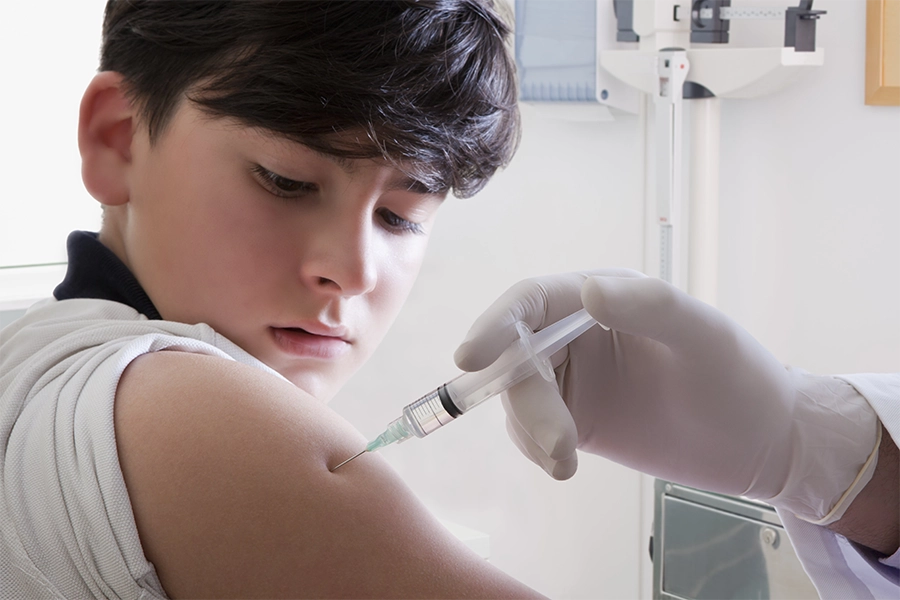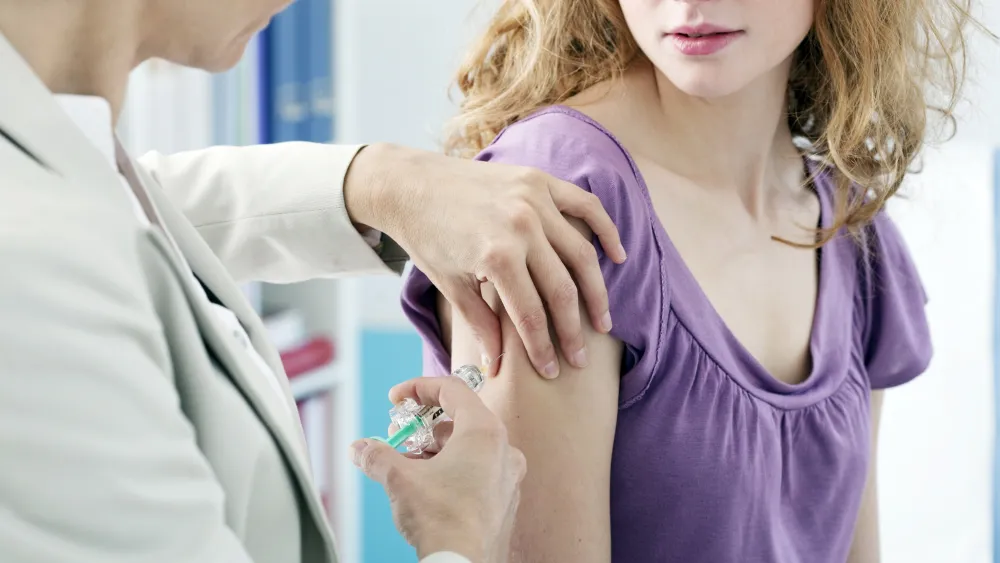
Today's Medicine
What You Need To Know About the Cancer-Preventing HPV Vaccine
Published: Jan. 20, 2021

Vaccines have long been key to keeping people healthy, but there’s an important one you may not be familiar with.
The HPV vaccine can prevent the spread of human papillomavirus, which can cause several types of cancer. HPV is the most common sexually transmitted infection in the U.S. Getting vaccinated in adolescence is a safe and effective way to protect yourself against HPV-related diseases in the future.
HPV Basics
HPV is most commonly spread by direct contact of infected skin or mucous membranes during vaginal, anal or oral sex. It’s so common that nearly everyone will get at least one type of HPV in their lives.
People with HPV infections usually have no symptoms. As a result, they may not be aware they have or are spreading the infection. In most cases, an infection is cleared by the body’s immune system and doesn’t cause health problems. But in some cases it can cause:
- Oral, oropharyngeal (throat) or genital warts
- Cervical, vaginal, vulvar, penile, anal or oropharyngeal cancer
Preventing an Infection
Abstaining from sexual activity is the best way to prevent an HPV infection. But you can lower the risk of infection by:
- Getting the HPV vaccine
- Using condoms whenever you engage in sexual activity
- Limiting your number of sexual partners
Benefits of the Vaccine
There are a number of benefits to the HPV vaccine, and it’s even more effective when received at a younger age. Younger adolescents develop higher levels of the protective antibody, which:
- Protect against nine common HPV virus strains
- Protect against oral and genital warts
- Decrease the risk of many cancers
Numerous studies have shown the effectiveness of the vaccine and its effects on cervical and anorectal cancers. Getting vaccinated as an adolescent will prevent you from developing certain cancers as an adult.

Who Needs the Vaccine?
Adolescents are encouraged to get the vaccine between the ages of 11 and 12, but everyone ages 9 to 45 should consider the getting the HPV vaccine. Even adults in monogamous relationships should consider the vaccine because relationships sometimes end, and new partners could lead to HPV exposure. Children under 15 need two doses of the vaccine, while anyone older needs three doses.
Most insurance plans completely cover the cost of the vaccine for ages 9 to 26. If you are 27 to 45 years old, be aware that you will likely need to pay for the vaccine out of pocket, which can add up to hundreds of dollars. Talk to your primary care provider if you’re an adult considering the vaccine, and check your coverage with your insurance provider.
Common Questions
Some common questions and concerns patients and families have about the vaccine include:
Q: Is it safe?
A: The HPV vaccine is around 15 years old and has been tested for safety and effectiveness. It’s been administered to millions of people worldwide.
Q: Are there side effects?
A: The most common side effects are soreness or redness at the injection site. Dizziness, fainting, nausea and headache are possible, but the vaccine’s benefits outweigh any risk of side effects.
Q: Isn’t it only for people 26 and younger?
A: The vaccine is now FDA-approved for ages 27-45, but most insurance providers do not cover the cost of the vaccine for people over 26.
Q: Does it promote sexual activity in youths?
A: Some parents have reservations because their child isn’t sexually active, they don’t want to think about their child becoming sexually active or they don’t want their child to think they have a free pass for sexual activity. Parents should remember all that the HPV vaccine prevents – including certain cancers. If their children are vaccinated years before they’re sexually active, they will be fully immunized when they start that chapter of their lives.
Q: Where can I get the HPV vaccine?
A: Vaccinations are available at providers’ offices, community health clinics, school-based health centers and health departments.
The HPV vaccine is an essential cancer-preventing tool. To learn more, talk to your primary care provider or go to the Centers for Disease Control and Prevention’s website.
More Resources
- Learn how the HPV vaccine may prevent head and neck cancers.
- Get more information on what vaccines you need at every age.
- Read how Methodist helped one man beat HPV-related cancer.

